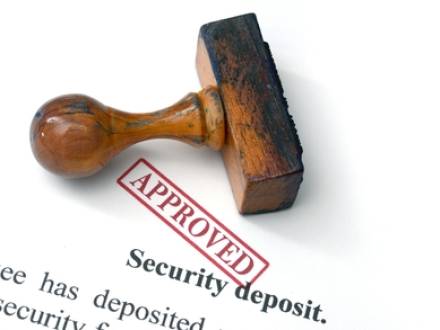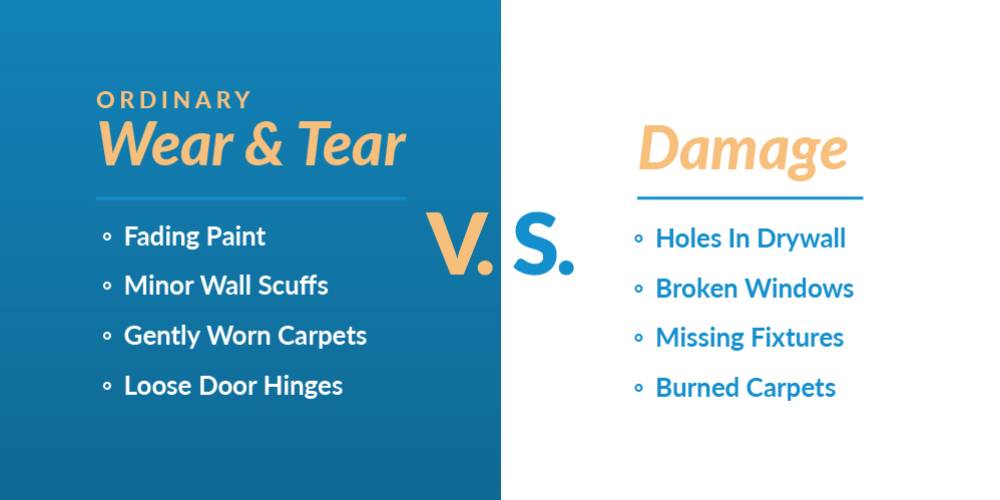Contact Our Firm
The use of the Internet or this form for communication with the firm or any individual member of the firm does not establish an attorney-client relationship. Confidential or time-sensitive information should not be sent through this form.
I have read and understand the Disclaimer and Privacy Policy.

Florida Security Deposits: Tenant and Landlord Rights
 More than any other part of a Florida lease, security deposits typically cause the most conflict. A tenant may move out and never hear back about his or her security deposit, or a landlord may claim damages months later and refuse to return the security deposit. Yet Florida law is clear. There are strict deadlines and written notices that govern the process and timing of returning security deposits.
More than any other part of a Florida lease, security deposits typically cause the most conflict. A tenant may move out and never hear back about his or her security deposit, or a landlord may claim damages months later and refuse to return the security deposit. Yet Florida law is clear. There are strict deadlines and written notices that govern the process and timing of returning security deposits.
Under Florida Statute Section 83.49, both sides have specific rights, duties, and penalties for non-compliance. This statute applies to residential rather than commercial rentals, and covers how deposits must be held, accounted for, and returned. Whether you are a landlord attempting to stay compliant or a renter fighting for your security deposit to be refunded, understanding how the law actually works can prevent a costly mistake. Having a Fort Lauderdale, FL real estate lawyer help you navigate this difficult situation can work to improve the outcome.
From the Renter’s Perspective: How to Get Your Security Deposit Back
Under Florida law, landlords are required to return a security deposit within 15 days if no deductions are claimed, or provide written notice of intent to claim within 30 days via certified mail to the tenant’s last known address. The notice must itemize any deductions for unpaid rent or any damages beyond normal wear and tear. The list must clearly show any deductions, including excessive cleaning costs. Tenants then have 15 days to object (in writing) to the deductions. If the tenant does not object within 15 days, he or she loses the right to dispute the landlord’s claim.
If the tenant objects to the landlord withholding money from the security deposit, the landlord cannot deduct the claimed amount unless they sue the tenant. Even if the landlord then sues the tenant, the tenant may still try to recover the part of the deposit that is not in question. If the landlord fails to meet his or her timeline, then the right to withhold some or all of the deposit can be forfeited. If the landlord has no plans to claim any part of the deposit, then it must be returned within 15 days from the date the renter vacates the property.
Tenants should always take timestamped photos when they move into a home and again when they move out. A forwarding address should be provided to the landlord in writing so there are no issues with returning the security deposit. Copies of all correspondence should be kept in a safe location. If a deduction notice is received from the landlord, the objection must be sent via certified mail. If the landlord refuses to comply with the law, the tenant can file a claim in small claims court if the amount is less than $8,000.
From the Landlord’s Perspective
Landlords in Florida must provide written notice of where the deposit is being held within 30 days of receiving it, including the name and address of the bank. When the renter moves out, the landlord is responsible for promptly inspecting the apartment or home and documenting all damages. At this point, the landlord will either return the entire security deposit or send a certified letter to the tenant’s last known address within 30 days of claiming deductions. The only legal deductions allowed are those for:
- Unpaid rent
- Any physical damage that goes beyond normal wear and tear
- Any required cleaning to restore the apartment to its original condition.
Landlords should understand that failure to use certified mail or meet required deadlines can void any claim of damages. Undisputed amounts should be returned to the renter promptly to avoid any penalties. If the damages to the apartment exceed the security deposit, landlords are allowed to counter-sue if the evidence supports the claim. Landlords should always use a separate bank account for security deposits and provide written disclosures as required. If part or all of the security deposit is being withheld, the reason for the withholding should be carefully documented. Ordinary wear and tear cannot be deducted from a security deposit.
What Is Considered Ordinary Wear and Tear as Opposed to Damage?
Fading paint and minor wall scuffs from everyday exposure and use are considered ordinary wear and tear. Gently worn carpets, stained or discolored bath fixtures, indentations in the carpet from furniture, and loose door hinges or handles are all considered a result of everyday, regular use, therefore ordinary wear and tear.
Holes in drywall, broken windows, missing fixtures, gouges or deep scratches in hardwood, and heavily stained, torn, or burned carpets are all considered damage and are deductible from a renter’s security deposit. Excessive smoking (unless it is a no-smoking apartment or home) that causes widespread staining or odor is also considered damage.

Special Considerations Regarding Florida Security Deposits
Corporate landlords who use property management firms are bound by the same rules as private landlords. If an apartment had joint tenants, deposits must be handled collectively; disputes are common when one roommate leaves early and the other claims that they were the person responsible for the damage.
Florida may require payment of interest if the security deposit was held in an interest-bearing account, particularly if the tenant was a long-term renter. Tenants have five years to bring a written contract claim for the return of their security deposit. When deadlines pass without action, or when damage claims seem inflated or wholly fabricated, it is time to seek legal assistance.
Contact a Broward County, FL Real Estate Lawyer
Whether you are a Florida tenant fighting for the return of your deposit or a landlord attempting to withhold part or all of the deposit for damages, the deadlines in the state are non-negotiable. A single missed notice can cost either side hundreds or even thousands of dollars. The best course of action is to speak to a Fort Lauderdale, FL landlord-tenant attorney from The Elliot Legal Group, P.A. who can review your case, protect your rights, and ensure compliance with the law. Attorney Elliot also practices international business law and is a licensed solicitor in both England and Wales. To schedule your initial attorney meeting, call 754-332-2101.















